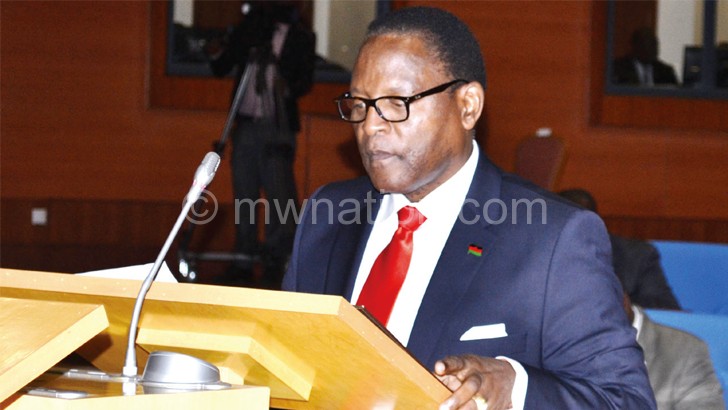Presidential aspirants speak on 2019 polls
Despite failing to make it to the State House in the May 20 2014 Tripartite Elections, most presidential aspirants who contested the elections have expressed interest to contest again.
However, they said they are counting on their political parties’ membership to entrust them with the task during national conventions planned for the next couple of years.
Ironically, their desire to run again come against the backdrop of their seemingly narrowing popularity as most of them have apparently resigned to their fate after the 2014 race.
In exclusive interviews with The Nation last week, six of the candidates expressed interest to try their luck again in 2019 and hoped their respective parties would endorse their entry.

The candidates, who included Malawi Congress Party (MCP) president Lazarus Chakwera, Hellen Singh of United Independence Party, John Chisi of Umodzi Party, George Nnensa of Malawi Forum for Unity and Development (Mafunde) and Mark Katsonga of People’s Progressive Movement (PPM), believe that they have the muscle to upset the tables and serve Malawians.
Kamuzu Chibambo of People’s Transformation Party (Petra) and Davis Katsonga of Chipani cha Pfuko were not available for comment, while United Democratic Front (UDF) leader Atupele Muluzi asked for a questionnaire which he did not respond to as we went to press.
However, Friday Jumbe of the defunct New Labour Party said he is no longer interested in politics as his focus is now on evangelism and farming.
President Peter Mutharika, who won on the Democratic Progressive Party (DPP) ticket, has already made it public that he would seek reelection in the 2019 polls.
While expressing desire to contest again, Chakwera, who is also leader of opposition in Parliament, said his party holds the key to his candidature.
He said: “That will depend on a number of factors but as a person, yes I am ready to contest again although the party will have to decide on that.”

Similarly, Chisi said he would be happy to have his name on the ballot but the party membership has the final say on who to feature.
“The owners of the party will decide who they want to be their torch-bearer,” said Chisi, who came seventh in 2014.
But, perhaps save for main opposition MCP, People’s Party (PP), Umodzi and Petra, the rest of the opposition parties have shown little or nothing to justify their existence since losing the 2014 race, a development a political scientist has said is understandable from a financial perspective.
University of Malawi’a Chancellor College political scientist Boniface Dulani observed that keeping a political party active in the country is expensive business considering that most of them are financed by a few individuals.
He said: “So, if they were to be very active on the campaign trail, chances are they would become bankrupt maybe two years before the general elections. Therefore, some take advantage of this period to accumulate resources so that come 2018, they become active. So, that’s understandable from a monetary perspective.”
Nearly all the parties are expected to hold their conventions between next year and early 2019, starting with PP in either September or October 2017, according to its acting president Uladi Mussa.
However, Dulani said it was important for the parties to remain active so that electorates consider them relevant in between elections.
He said: “The current scenario where most of our political parties are dormant sends a signal that they are not really interested in the people but their votes. It also means their activities are only geared towards elections, but democracy is more than the elections.”
The opposition parties, however, claim since 2014, they have been dynamic in providing checks and balances and guidance to the DPP administration.
“For instance, we provide oversight to the national budget in Parliament. We have played a crucial role as opposition parties in ensuring that funds are allocated to noticeable votes,” said Mussa.
On his part, Chisi said: “I think we have been very dynamic in providing checks and balances as well as commenting on key issues affecting the nation.”
Singh said she had been sensitising citizens on the “serious shortfalls” of the DPP administration.
She said: “I have not been idle as people may think. I have been going around, reminding Malawians the great promises the DPP made but now is failing to fulfill. Technically, they seem not prepared to govern the country.”
Early this year, the Economist Intelligence Unit (EIU) of The Economist magazine predicted that Mutharika may have an edge over the opposition in 2019 elections, but could slip if the economy worsens.
In its 2016 second quarter forecast report for Malawi generated on June 28 2016, the EIU also said Chakwera was Mutharika’s biggest threat.
During the 2014 polls, 12 presidential candidates battled for the race to the State House which saw Mutharika’s DPP winning with a minority 1.9 million votes, representing 36.4 percent. n





